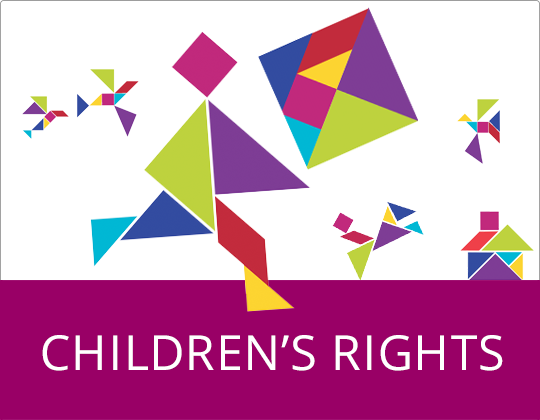Bullying

Protecting all children from violence, including from violence in schools and bullying, is one of the strategic priorities of the current Council of Europe Strategy on the Rights of the Child 2022-2027. Prevention of bullying starts with educating children about the harmful effects of bullying and that their actions have an impact on others. Therefore, the Council of Europe promotes whole school human rights and citizenship education programmes to tackle bullying and violence in schools. These Citizenship and human rights education programmes are based on the principles of the Council of Europe Charter on Education for Democratic Citizenship and Human Rights which all 46 member states of the Council of Europe have adopted.
The Directorate of Democratic Citizenship and Participation that carries out the Council of Europe efforts on fighting bullying has created a wealth of tools which can be used in the fight against bullying. These include child-friendly material and educational material for education professionals to use in schools such as the Compasito manual on human rights education for children.
The film ”Beat Bullying” demonstrates the harmful effects of bullying in a child-friendly manner and how citizenship education programmes can equip children with the necessary understanding and skills to stop bullying.
I. Cyber bullying
Cyber bullying, or using electronic technologies in order to bully another person through the Internet is becoming more common among children and youth today. The challenge with cyber bullying is the fact that it takes on so many different forms. Examples of cyber bullying include mean text messages or emails, rumours sent by email or posted on social networking sites, and embarrassing pictures, videos or websites. A study by EU Kids Online from 2010 revealed that one in five children have been exposed to cyber bullying and according to children, cyber bullying is one of the most harmful risks they associate with the Internet.
How to deal with Cyberbullying: It has been suggested that cyber bullying can be avoided by simply turning off the digital device or logging off the social networking site. However, this is not a solution; children who become victims of cyber bullying may often feel like there is no escape. The hateful messages are already public, they continue to exist and they can have a profoundly negative effect on the victim’s wellbeing. Cyber bullying seems to be a new form of a long-established problem and as such requires a new approach. Victims of cyber bullying must be assisted to find effective ways to combat it. Likewise, children who are perpetrators of cyber bullying need to be informed about the consequences of their behaviour on the Internet.
All 47 member states of the Council of Europe have adopted the Charter on Education for Democratic Citizenship and Human Rights Education which requires them: “to combat all forms of discrimination and violence, especially bullying and harassment”.
The Parliamentary Assembly in its Resolution on education against violence at school adopted several guiding principles that it calls on member states’ parliaments to endorse at national level in their efforts to beat bullying. This resolution also entails a commitment to ensure that work on the subject of children and violence remains a priority for the Council of Europe.
The Council of Europe efforts on fighting bullying are carried out by the Directorate of Democratic Citizenship and Participation. Beat Bullying, is a video spot which was produced to show the harmful effects caused by bullying. It demonstrates how human rights and citizenship education programmes can equip children with the necessary skills to help stop bullying and cyber bullying.
The Council of Europe’s Youth Sector is running a campaign to target hate speech online. It aims to combat racism and discrimination, as expressed online as hate speech, by mobilizing young people and youth organisations to recognise and act against such violations.
II. Council of Europe legal standards
Committee of Ministers
The Committee of Ministers recommends the governments of member states to implement measures and policies based on the Charter on Education for Democratic Citizenship and Human Rights Education (the Charter). The Charter is the appendix to the Recommendation.
Parliamentary Assembly
Recommendation on Education against violence at school (2011)
This Recommendation draws the attention to the need to enhance policy design concerning education against violence at school. This can be done through holistic and proactive educational policies and greater co-operation at European level.
Congress of Local and Regional Authorities
Recommendation 135 (2003) on local partnerships for preventing and combating violence at school
This Recommendation addresses the increase of violence throughout Europe and the tendency for violence at school to start at an increasingly early age. School violence has an enormous social cost which requires mobilisation of all sections of the community. The Congress in this Recommendation develops several fundamental principles which any policy for combating or preventing violence must be based on.
Resolution 160 (2003) on local partnerships for preventing and combating violence at school
This Resolution reiterates the fundamental principles and issues addressed in the Recommendation on local partnerships for preventing and combating violence at school. In particular the Congress invites the local authorities of Europe to make the prevention and reduction of violence at school part of their overall policy to combat urban insecurity and support multidisciplinary action which encompasses the combating of violence at school.
III. Resources
Council of Europe resources
- Mapping study on cyberviolence (2018)
- Report of the Expert meeting "Tackling violence in schools" (Oslo, 2011)
- Violence in schools - a challenge for the local community (2004)
- Compass - a manual on human rights education with young people
Other resources
- ENABLE (European Network Against Bullying in Learning and Leisure Environments)
Enable aims to tackle bullying in a holistic way, helping young people exercise their fundamental rights in the home, school, class and community - European Anti-bullying Network
- Arbax, EU project against racial bullying and xenophobia
- European projects to fight and prevent cyberbullying
- "Digital Media and children‘s rights", United Nations Committee on the Rights of the Child, Report of the 2014 Day of General Discussion



